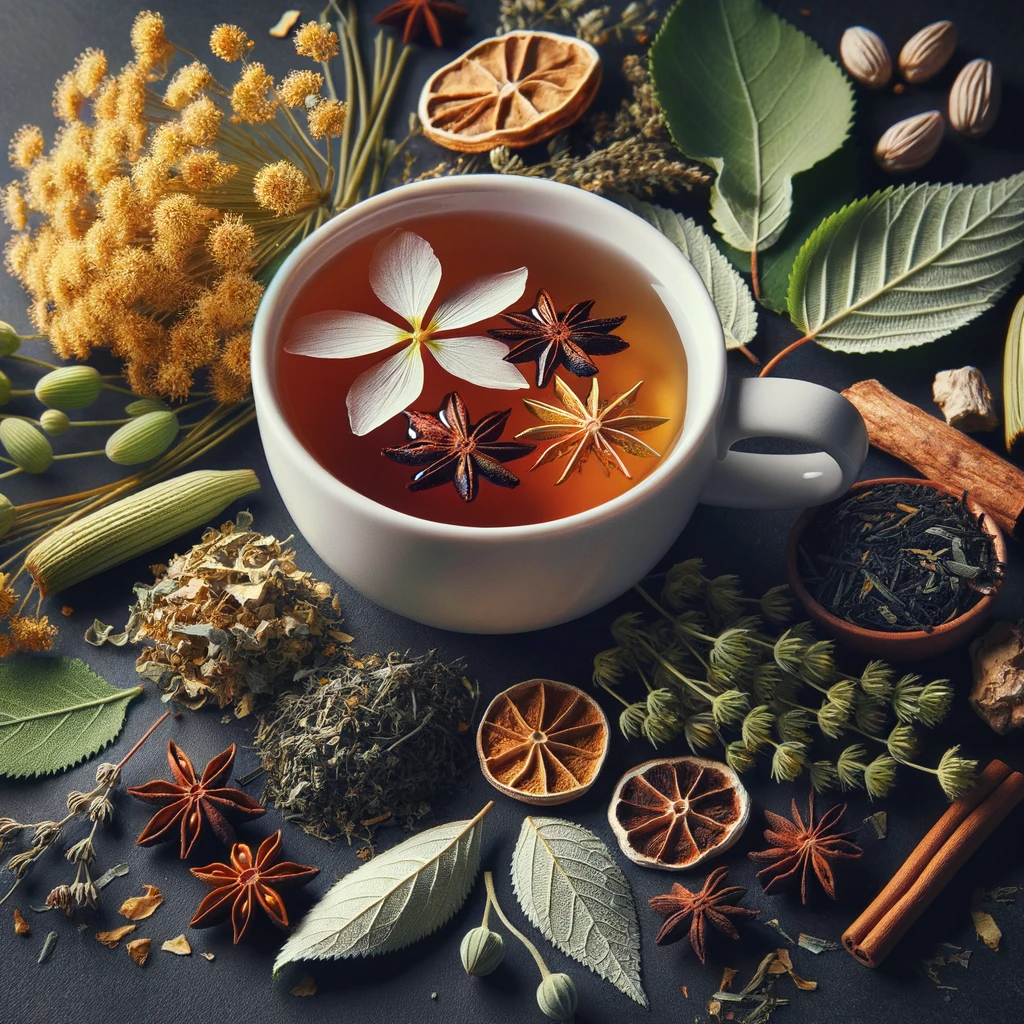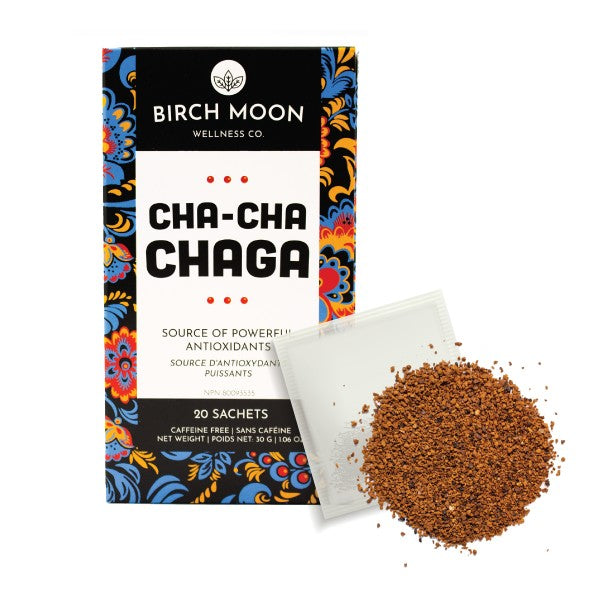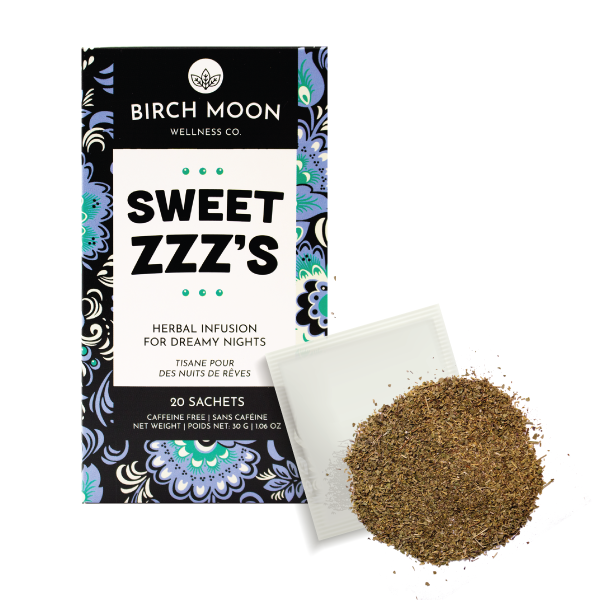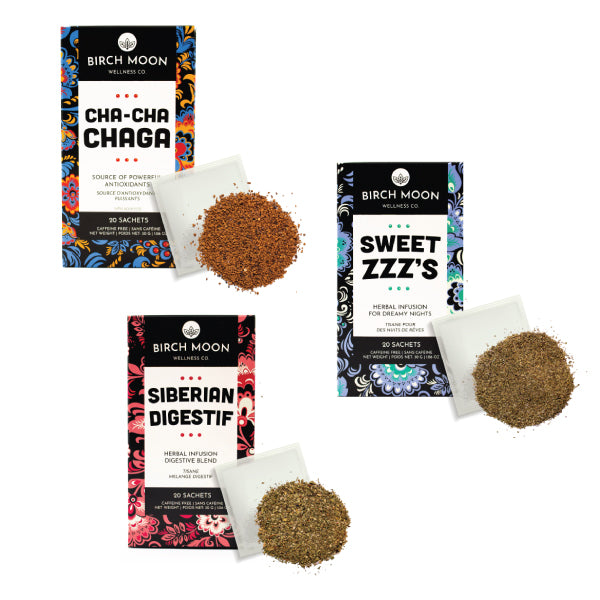In the quest for holistic wellness, the power of nature's botanicals cannot be overstated. At Birch Moon Wellness Co., we've always been passionate about harnessing the therapeutic wonders of plants. That's why we crafted our Cold Ally Herbal Tea, a potent blend that brings together five incredible ingredients: linden flowers, plantain leaves (Plantago major), licorice root, thyme, and rose hip. Each sip not only warms the soul but also offers a myriad of health benefits, which have been celebrated in traditional medicine for centuries. Dive in as we explore the science-backed advantages of these remarkable ingredients.

1. Linden Flowers
Linden flowers, also known as lime flowers, come from the Tilia tree. These fragrant blossoms have been used in European folk medicine for generations. Some of the well-documented benefits of linden flowers include:
-
Relief from Anxiety and Stress: A study published in the Journal of Ethnopharmacology found that extracts from linden flowers have sedative effects, which may help reduce anxiety and promote relaxation1.
-
Support for Digestive Health: Traditional use has also pointed to linden flowers' potential to alleviate indigestion and other gastrointestinal complaints.
2. Plantain Leaves (Plantago Major)
Not to be confused with the banana-like fruit, plantain leaves from the Plantago major plant have been a staple in traditional medicine across various cultures. The leaves are rich in mucilage, which gives them their soothing properties. Some of the recognized benefits are:
-
Skin Healing: Due to its anti-inflammatory and antibacterial properties, plantain leaf has been used to treat minor wounds and skin irritations. A study in the International Journal of Molecular Sciences highlighted its potential in promoting wound healing2.
-
Respiratory Support: The mucilage in plantain leaves can act as a natural cough suppressant, making it a common ingredient in herbal cough remedies.
3. Licorice Root
Licorice root, derived from the Glycyrrhiza glabra plant, is more than just a flavoring agent in candies. It has a rich history in both Eastern and Western traditional medicine. Among its many potential benefits:
-
Digestive Support: Licorice root has been used to treat various digestive ailments, including heartburn and stomach ulcers. A study in the Digestive Diseases and Sciences journal found that licorice root extract could be effective in treating peptic ulcers3.
-
Immune System Boost: Licorice contains compounds that might enhance the body's defense mechanisms, although more research is needed in this area.
4. Thyme
Thyme, a fragrant herb often found in kitchens, also boasts medicinal properties. Some of its key benefits include:
-
Antimicrobial Properties: Thyme oil contains thymol, a compound with potent antibacterial and antifungal properties. A publication in Food Chemistry showcased its effectiveness against foodborne bacterial infections4.
-
Respiratory Health: Thyme has been traditionally used in syrups and teas to alleviate coughs and sore throats.
As we delve deeper into the therapeutic world of these botanicals, it's essential to approach with an open mind, yet remain grounded in scientific evidence. While these plants offer potential health benefits, it's crucial to consult with healthcare professionals before incorporating them into your wellness routine.

5. Rose Hip
The fruit of the rose plant, often overlooked in favor of its beautiful blossoms, rose hip has a rich history in herbal medicine. Packed with essential vitamins and antioxidants, it's a powerhouse of nutrition and healing. Here's what science says about its benefits:
-
Rich in Vitamin C: One of the most celebrated properties of rose hip is its high vitamin C content. This potent antioxidant is crucial for collagen synthesis, aiding in skin health, and supporting the immune system. A study in the Journal of Agricultural and Food Chemistry reported that rose hip powder could provide more than half of the recommended daily intake of vitamin C in a single serving[^5^].
-
Joint Health: Chronic inflammation can lead to joint pain and disorders like arthritis. Rose hip has been studied for its potential anti-inflammatory effects, with a publication in the Scandinavian Journal of Rheumatology indicating that it might help reduce symptoms of osteoarthritis[^6^].
With the increasing interest in natural remedies, the therapeutic potential of plants like linden flowers, plantain leaves, licorice root, thyme, and rose hip is coming to the forefront. It's fascinating to see how traditional wisdom aligns with contemporary scientific findings. While the individual benefits of these ingredients are impressive, their combined synergy in our Cold Ally Herbal Tea provides a holistic approach to well-being.
It's essential to remember, however, that while these ingredients offer numerous health benefits, they should complement, not replace, medical advice and treatment. Always consult with a healthcare professional before making significant changes to your wellness routine or if you have specific health concerns.
Birch Moon Wellness Co. is committed to bringing you the finest blends inspired by nature and backed by science. Our Cold Ally Herbal Tea is a testament to this commitment, providing not just a soothing drink for cold evenings but also a cup filled with nature's goodness.
Footnotes
-
Journal of Ethnopharmacology, "Sedative effects of Tilia flowers."
-
International Journal of Molecular Sciences, "Plantain leaf extracts in wound healing."
-
Digestive Diseases and Sciences, "Licorice root in peptic ulcer treatment."
-
Food Chemistry, "Thymol's antimicrobial activity."
-
Journal of Agricultural and Food Chemistry, "Vitamin C content in rose hip."
-
Scandinavian Journal of Rheumatology, "Rose hip's effects on osteoarthritis."





